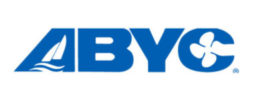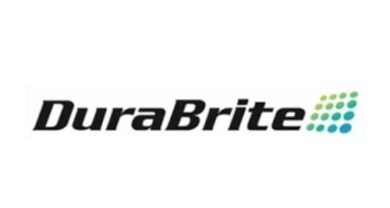NMMA issues Action Alert on boat permits
CHICAGO – The National Marine Manufacturers Association has issued an Action Alert message to its members calling on them to send letters to the Environmental Protection Agency protesting a proposed permitting program the agency is poised to begin developing.
The new permit program would regulate gray water, engine cooling water, deck wash and other discharges associated with the normal operation of a recreational boat, NMMA said.
“We ask that you take the time to send a note to EPA telling the agency about the potential negative impacts a new complex permitting program will have on boating, the boating industry and your bottom line,” NMMA wrote in its Action Alert.
NMMA included “talking points” it suggested members highlight in letters addressed to EPA’s Benjamin H. Grumbles, the assistant administrator for Water, and provided a letter template members could use for their messages. It also requested that members be sure to send a copy of those messages to their representatives asking that they support H.R. 2550, the Recreational Boating Act of 2007, a bill that will ensure that boaters will not have to get a Clean Water Act – NPDES permit for their boats.
NMMA said it has already filed initial comments and will follow up with more substantive comments on Aug. 6.
The letter template NMMA included is as follows (emphasis is from NMMA):
Dear Mr. Grumbles:
[[Describe your company and your interest in boating.]]
The Environmental Protection Agency (EPA) should not lump small family-owned recreational boats into the same class as large commercial ships when the agency develops its new vessel permit program. Recreational boats cannot be equated with commercial ships and should not be subjected to complex permit requirements for the following reasons:
Recreational boat bilge and gray water discharges pale in comparison with the large quantities of commercial ship ballast water and gray water discharged into U.S. waters. In contrast, recreational boats emit only minor amounts of bilge water, deck runoff, engine cooling water, and gray water and these discharges are necessary for the safe and normal functioning of these boats.
Recreational boats are owned and operated for fun by individuals and families, not large companies with experts on retainer. Commercial vessel owners can hire experts and employees to figure out EPA’s complex rules, permit applications and reporting requirements. Boaters cannot be expected to navigate a complex permit system and cannot afford to pay large permit fees.
Boaters will no longer have free access to the water if they must first get a separate permit to boat in each and every state. Requiring boaters to get one permit is daunting – requiring them to get a permit for every state whose waters they may travel is absurd and amounts to a national boating ban.
There is little that a recreational boater can do to change the way their boats operate. Boaters cannot be expected to install new untested equipment on their boats to comply with an EPA or state permit.
In contrast, recreational marine engine and boat manufacturers are currently making large investments in new technology to implement the new emission requirements proposed on May 18, 2007 by EPA for boat engines and marine fuel systems. This EPA proposal will require outboard and personal watercraft engines to be certified to the same stringent exhaust emission standards as will be required by the California Air Resources Board (CARB) in 2008. For sterndrive and inboard engines, the EPA rule proposes catalyst-based exhaust emission standards that will apply beginning in 2009. In addition, boat builders will be required to change fuel systems to comply with new requirements for fuel hoses, plastic fuel tanks and to control emissions from the fuel tank vent. These fuel system changes will eliminate fuel vent spills.
EPA will not be able to alert and educate all U.S. boat owners in time about the need to obtain Clean Water Act NPDES permits from the EPA and the 45 states with authority to issue these permits. Thirty-two percent of U.S. adults went boating in 2006 and there are nearly 18 million recreational boats in use in the U.S. It will be a major undertaking to alert and explain to all registered and U.S. documented boat owners the need for new boat permits. In addition, there is simply no reliable way for EPA to identify and contact the many non-registered or non-documented boat owners.
It will be much more effective and result in less government waste to put EPA and the states’ energies instead into working closely with boating organizations to help educate boaters about already existing boater best practices. There will be no improvement in the environment by requiring boaters to fill out long government forms and pay large fees for the privilege of boating. Instead, EPA and the states should look to boost the funding and profile of the many programs nationwide that educate boaters on the simple steps they can take to reduce their impact on the environment such as using absorbent pads when refueling or using biodegradable soaps and cleaners.
Thank you for considering my views on EPA’s notice of its intention to create a new permitting program for discharges from vessels.
Contact Information
The NMMA asked members to direct any questions to Cindy Squires (csquires@nmma.org; 202-737-9766) or Mat Dunn (mdunn@nmma.org; 202-737-9760).
It also included an address where the letters should be sent, which is:
Benjamin H. Grumbles
Assistant Administrator for Water
c/o Water Docket
Environmental Protection Agency
Mailcode 2822T
1200 Pennsylvania, Ave., NW
Washington, D.C. 20460
The letters can also be sent by email [mailto:ow-docket@epa.gov include in the subject Docket ID No. OW-2007-0483].
- For more of the latest news, click here.




